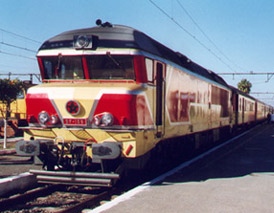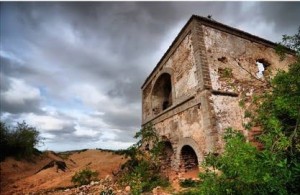Tourism is not a new phenomenon for Marrakesh. Morocco as a whole has long attracted explorers and adventurers, artists and their muses and those in search of the mystic and exotic. From 17th century diarist Samuel Pepys to 20th century author George Orwell; from Winston Churchill to Franklin D. Roosevelt; from Yves Saint-Laurent to the Rolling Stones. All have sought out the particular charms of Marrakesh and the city undoubtedly cast its special spell on them as it has on many millions of visitors since.
In the 1960s, Morocco’s accessibility – just a short ferry journey across the Straits of Gibraltar on a ferry in a psychedelic painted VW Beetle or Camper Van (and the accessibility of its notorious cannabis) put Morocco firmly on the hippie trail. Morocco then became the inspiration and bolthole of a number of icons of the era. Rolling Stones, Mick Jagger and Keith Richards came here to escape media attention ahead of their infamous drugs trial and hang out with the likes of Paul and Talitha Getty. One of the most famous photographs of Patrick Litchfield’s career is of the Gettys on their Marrakesh terrace, taken in 1969. Their contemporary, Yves Saint-Laurent recalled that other era of excess, the Roaring 20s, when he said of the Gettys:
“ I knew the youthfulness of the Sixties (…) Talitha and Paul Getty lying on a starlit terrace in Marrakesh, beautiful and damned, and a whole generation assembled as if for eternity where curtain of the past seemed to lift before an extraordinary future.”
1969 was undoubtedly the peak of this very special era. In the early morning of 18 August 1969, in a field in New York, Crosby, Stills and Nash played the first concert performance of Marrakesh Express at the Woodstock Festival. In the way that Woodstock defined an era and a cultural movement, the song defined an image of Marrakesh which persists today. Graham Nash was inspired to write the song by a train journey he took between Casablanca and Marrakesh in 1966. He claims that on finding his first class carriage “boring”, he went to explore second class, which he found fascinating and full of “ducks and pigs and chickens,” according to the lyrics. (Although pigs are unlikely in a Muslim country – poetic licence, perhaps?)

I’ve been saving all my money just to take you there.
I smell the garden in your hair.
Take the train from Casablanca going south,
blowing smoke rings from the corners of my mouth.
Colored cottons hang in the air,
charming cobras in the square.
Striped djellebas we can wear at home.
Well, let me hear ya now.
The colored cottons are probably a reference to the kelims and carpets Nash observed hanging on buildings and shops as he approached the centre of Marrakesh, where, just as today (and for centuries previously), he found snake charmers in Place Jmaa el Fna. Djellabas, the typical hooded robes of Moroccans, are a practical garment and a popular souvenir. There are many archive photos of 60s icons dressed in this costume.
Incidentally, it was also in 1969 that Jimi Hendrix, another icon of the period, visited the boho-chic coastal resort of Essaouira. Much is made of this connection in the town and it is said that the ruined Sultan’s Palace in the nearby village of Diabat inspired his hit, Castles in the Sand. A brief fact-check reveals that the song was released two years previously, but facts never stand in the way of a good Moroccan legend!
It is still possible to take the Marrakesh Express train, although ducks, pigs and chickens are a rare sight nowadays. You might begin your journey – as thousands of hippies did – at Tangiers following your ferry crossing from Spain. You can even start your train adventure further back in former Al Andalus – in Seville or Granada. Or, like Graham Nash your journey may begin in Casablanca, the location of Morocco’s largest international airport. Your journey will pass through arid plains, past low hills and through villages and towns. Typically, Moroccan passengers are friendly and generous. Moroccan trains are comfortable, although not luxurious. As a slow-paced introduction to the landscape and culture of Morocco, the modern day Marrakesh Express takes some beating!
Written by Lynn Sheppard
Lynn Sheppard has lived in Essaouira, on Morocco’s Atlantic Coast for more than 2 years, supporting local non-profits, writing and becoming an expert on all things Swiri (ie. Essaouiran). She blogs at Maroc-phile.com and for other travel industry clients.
For more information about the Marrakech Express or a Marrakech Tour
Morocco’s Imperial Cities, Seaside Resorts,Sahara Desert,Berber villages, A Taste of Morocco, Magical Kasbahs, Ruins & Waterfalls, Absolute Morocco, The Best of Marrakech, Fes, and Ouarzazate




